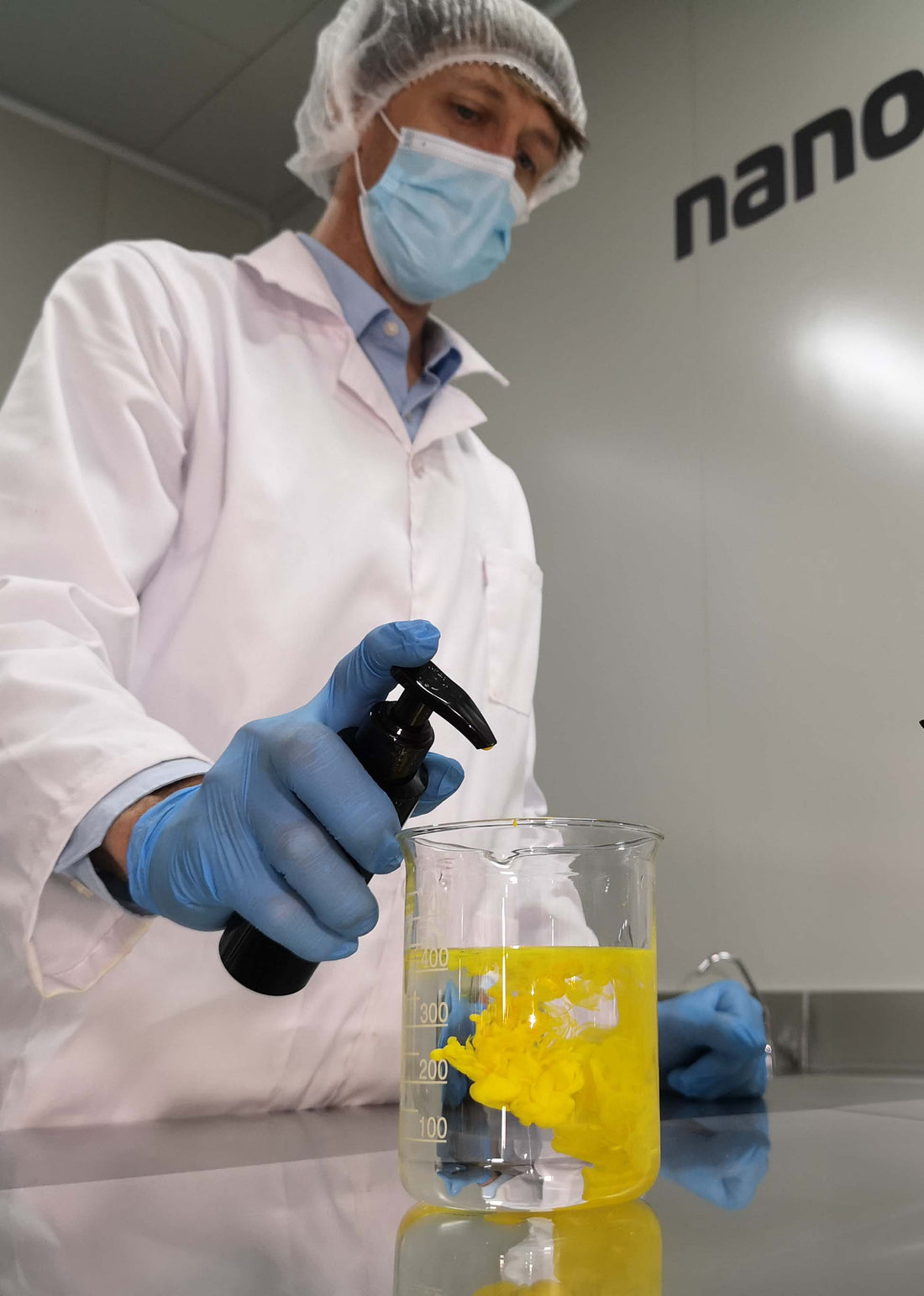Nano means really small. In scientific terms, nanoparticles are 200 nanometers or smaller in size. How small is that? A nanometer is a million times smaller than a millimeter. So if you took 50,000 particles that were 20 nanometers in size and placed them side by side, they’d fit inside a millimeter.
Some of the most beneficial nutrients like those found in Turmeric, Hemp and Frankincense are very hard for the body to absorb and if you can’t absorb them you can’t benefit from them. This explains why people sometimes take supplements and don’t feel any benefit.
Taking those special nutrients and making them Nano size dramatically increases how much the body can absorb and can increase the stability of the nutrients giving them more time to benefit your body.
The question arises however, is it safe to absorb a large amount of something that the body normally only absorbs in very small amounts?
That depends on what you are absorbing.
NATURAL NANO vs CHEMICAL NANO
Just saying Nano is easier than actually being Nano. Reducing particles to Nano size is a difficult thing to do that can require expensive equipment and specialized skills.
Unsurprisingly, some manufacturers resort to taking cheap shortcuts and using toxic solvents to achieve Nano-sized. The problem is that those toxic solvents remain in the finished product that you consume. So this is a case where Nano may not be safe. You’re absorbing large amounts of something unnatural that is known to be toxic.
The good news is that it is possible to make nutrients Nano-sized using clean, natural ingredients and processes. So it is possible to avoid those chemical toxins. Nano Nutrients has successfully been able to achieve this through years of research and development with its NanoFluidic™ and CleanCurcumin™ technologies.
But what about the nutrients themselves. Take Curcumin for example, the body normally only absorbs tiny amounts of it and sometimes none at all. What happens when you consume Nano Curcumin that the body can absorb?
Thankfully, this has also been tested in reputable scientific trials all over the world. Curcumin is a popular ingredient to use in Cancer research because of its safety and effectiveness against a broad range of cancer cells.
By placing Nano Curcumin in direct contact with both healthy and cancer cell types, it mimics what happens when Nano Curcumin gets into the blood and comes into contact with the cells of the body.
As the research has shown again and again, Curcumin is harmful only to cancer cells and not to normal cells, even when the cells are exposed to high concentrations of Curcumin for long periods of time.
Here is an example from some Cancer research at the University of Sydney in Australia.
“Curcumin nanoparticles were non-toxic towards healthy cells. Curcumin nanoparticles were only internalized into cancer cells and not non-cancer human cells.
Curcumin nanoparticles with the smallest size were the most potent against cancer cells and were well tolerated by healthy cells, even at concentrations as high as 50μM. This eliminates safety concerns regarding the toxicity of Curcumin nanoparticles.”
Dr. Lee, University of Sydney
Here is a similar example from some cancer research using Frankincense put in direct contact with both cancer and normal, healthy human cells.
“Interestingly, these toxic effects against cancer cells were also tested on non-cancer human cells, and there was no significant effect on cell viability, suggesting that the destructive effects are sustained only in the presence of cancer cells but not normal cells.”
Dr. Azzazy, The American University of Cairo
CLEAN CURCUMIN
Clean Curcumin was developed to be the world’s cleanest, safest and most effective Curcumin. The Curcumin particles are embedded in a proprietary plant-based matrix of prebiotic nanoparticles that actually feed and support healthy gut bacteria as it passes through the body.
"Nano Nutrients have achieved true nanoscale within their CleanCurcumin™. Our laboratory at UTS has confirmed nano-sized curcumin particles within their botanical technology, and my team and I are excited to continue further research with the Nano Nutrients team.”
Professor Brian Oliver, University of Technology Sydney
